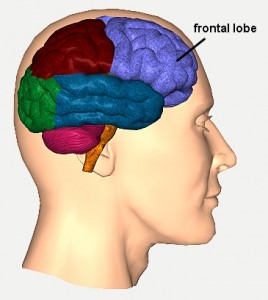Powerful catechins that are a special form of bioflavonoids provide the healing powers of green tea. Researchers have proven that these catechins are only in green tea, not so much in black tea. The most effective of several catechins contained in green tea is EGCG, which stands for EpiGalloCatechin-3-Gallate. It crosses the blood/brain barrier and is very important for the protection of the brain from Alzheimer’s disease. But green tea or green tea extract has a diversified pharmacological action. Researchers said that green tea protects you from cardiovascular disease, from obesity, from diabetes, from autoimmune disorders, from cancer, from Alzheimer’s and dementia.
In the following I like to comment on how green tea or its extract can protect from all of these diseases.
Alzheimer’s disease
Although there are 5 or 6 approved anti-Alzheimer’s drugs, none of them work for very long. They may at best postpone the deteriorating memory for 6 months, but then the effect of the drug wears off. The reason is that the drugs do not stop the production of the deadly beta-amyloid. It is the beta-amyloid that damages nerve cells that you want to preserve so you can think and memorize. In contrast a simple phytochemical, the catechin EGCG has been shown in animal experiments and in human trials to stop beta-amyloid production and increase solubility of beta-amyloid fragments in the brain. The end result is better memory and no further deterioration.
Two studies showing less strokes and better working memory processing with green tea
In a study of 13,988 elderly Japanese observed over 3 years the group that consumed 3 to 4 cups of green tea daily had 33% less strokes, cognitive impairment and osteoporosis.
Researchers at the University of Basel, Switzerland enrolled 12 healthy volunteers aged 21 to 28 and fed them extracts of green tea or placebo fluid via feeding tubes. They did this to rule out taste as a factor. The patients underwent functional MRI scans and they also received memory-stimulating tasks. Only the green tea extract was boosting activity in the frontal brain of the subjects. This was located in a specific area, called dorsolateral prefrontal cortex. This area has a connection with language comprehension, reasoning and learning. It also switches short-term memory into long-term memory, called working memory processing.
Healing powers of green tea through new nerve cell development
Researchers showed with animal experiments that green tea extract protects nerve cells from the toxic effect of beta-amyloid. At the same time green tea extract triggers the production of new brain nerve cells (neurons). This is really good news for Alzheimer’s disease patients and their families: green tea extract delays further memory deterioration and stimulates the development of new nerve cells in the brain!
Cardiovascular disease
In a 2006 Japanese study 40,530 Japanese adults aged 40 to 79 years without history of stroke, coronary heart disease, or cancer at baseline were observed for 7 years. Diaries were kept about how many cups of green tea each person was drinking per day. The prevention of heart attacks and strokes was the the biggest effect of green tea extracts.
Men had a mortality reduction of 12% for heart attacks when they drank 5 cups or more of green tea; in women the corresponding mortality reduction for heart attack was 31%, a bigger effect. Overall mortality from strokes was lower than from heart attacks. This made the effect of green tea consumption even more beneficial with respect to stroke prevention. This study did not show any cancer prevention effect for green tea.
Obesity
It appears that green tea increases heat production and burns fat in the process. There was a small effect in terms of weight loss and a beneficial effect increasing the protective HDL cholesterol in this 2012 Polish study on obese patients. The authors compared either 379 mg of green tea extract, or a placebo, daily for 3 months. They concluded: “The results of this study confirm the beneficial effects of green tea extract supplementation on body mass index, lipid profile, and total antioxidant status in patients with obesity.”
Diabetes
Although there are claims in some studies that green tea would prevent diabetes, this question was thoroughly investigated in this Chinese 2014 study.
Researchers did not see any effects on fasting blood sugars or on hemoglobin A1C values. Hemoglobin A1C is a very sensitive indicator for the presence or absence of diabetes. All these lab tests showed no change following consumption of green tea or green tea extract. Forget using green tea for diabetes prevention; cut out sugar and starchy foods instead.
Autoimmune disorders
Sjogren’s syndrome and lupus are both autoimmune diseases. Green tea extract has shown in humans that symptom severity can improve; green tea polyphenols (GTPs) possess anti-inflammatory properties that benefit patients with autoimmune diseases.
In an animal model arthritis researchers determined that T helper cells are weakened and bone resorption is inhibited by EGCG from green tea extract.
Researchers at Harvard Medical School, Boston, MA have noted that green tea extract is useful in calming down the immune response in autoimmune diseases. They concluded: “Altogether, these studies identify and support the use of EGCG as a potential therapeutic agent in preventing and ameliorating T cell-mediated autoimmune diseases.”
Cancer
Many researchers found that EGCG from green tea extract has immune modulatory effects. Furthermore, they saw a positive effect when patients received EGCG in combination with chemotherapy. A combination of cisplatin therapy with green tea extract has been found to have more effects on colorectal cancer and ovarian cancer than each one on its own. Similarly chemotherapy of breast cancer had better results in humans when EGCG from green tea extract was added as an immune modulation. More research, particularly in humans is needed to fully understand the mechanism of action of EGCG.
Toxicity of green tea extract
Animal experiments showed that higher doses of green tea extract could cause toxicity in the liver and in the nose of rats and mice. I was not able to find objective evidence for green tea toxicity in the PubMed system with respect to humans.
Conclusion
Perhaps the most important discovery regarding green tea extract is as follows. It crosses easily through the blood/brain barrier into the brain. This can postpone Alzheimer’s disease and can even lead to new neuron formation. The beneficial cardiovascular effects are also useful and combine well with exercise and good nutrition for prevention. Particularly stroke prevention is a useful property of EGCG from green tea extract. The effect on obesity is marginal whereas there was no effect of green tea on prevention of diabetes. The immune modulatory effect of green tea extract is useful in the treatment of autoimmune diseases and of cancer. Existing treatments for these conditions are becoming more effective by adding green tea extract.







